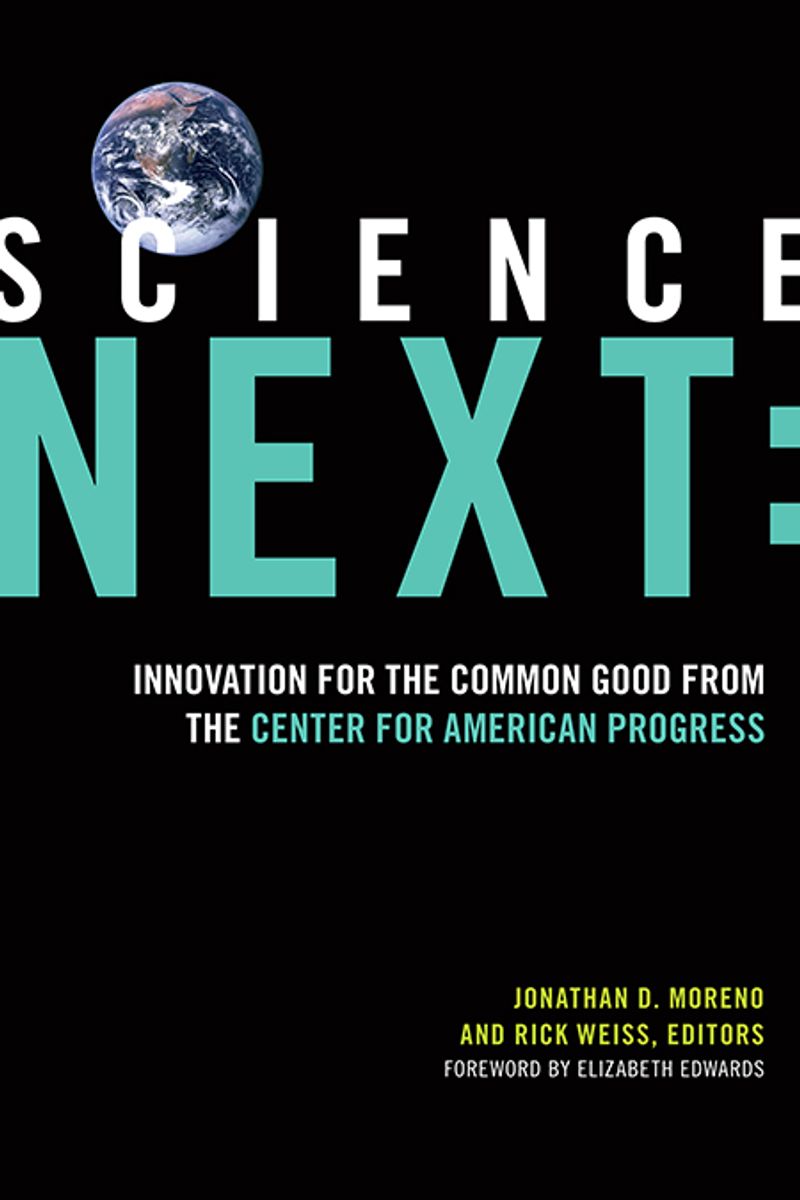Despite subsidized Big Oil, infrastructural collapse, food inspection system failures and ever worsening wildfires, this volume brings hope into focus with reports of innovation that will enhance lives, from caregivers to those running out of fresh water, from No Child Left Behind to university research.
Science Next
Innovation for the Common Good from the Center for American Progress
Emerging from the Bush era when right-wing ideology frequently trumped mainstream science in government, America needs bold new approaches to the most important issues of our time, such as global warming, stem cell research, national security, and improving communication in the digital age. This is the informed citizen’s essential guide to science policy from the premier progressive think tank dedicated to improving the lives of Americans through ideas and action.
With foreword by Elizabeth Edwards.

Paperback
- ISBN
- 9781934137185
Jonathan D. Moreno is a philosopher and historian who has advised many governmental and business groups and served on a presidential transition team. He is the author and editor of seminal books, including Impromptu Man: J.L. Moreno and the Origins of Psychodrama, Encounter Culture, and the Social Network; The Body Politic: The Battle Over Science in America, a Kirkus Reviews Best Book of the Year; Mind Wars: Brain Science and the Military in the 21st Century; and Science Next: Innovation for the Common Good from the Center for American Progress (co-edited with Rick Weiss). Called the “most interesting bioethicist of our time” by the American Journal of Bioethics, Moreno is a professor at the University of Pennsylvania, a member of the UNESCO International Bioethics Committee, a Senior Fellow at the Center for American Progress, and a regular contributor to the Huffington Post and Psychology Today. He divides his time between Philadelphia and Washington, DC.
visit author page »Praise for Science Next
I’m excited about Science Next because in its pages I sense visions of the future that combine knowledge with a concern for justice, marrying what we can be intellectually with what we can be morally. Innovation is not simply the abstract victory of knowledge; it is not just the research that gave me years to live; the next science can advance human flourishing and serve the common good. That’s the kind of world I want to leave for my children, and for yours.
— Elizabeth Edwards, author of Saving Graces: Finding Solace and Strength from Friends and Strangers
This elegant book lucidly covers an impressive amount of territory and sheds light on the current horizons of science. As such it will be invaluable to informed citizens, scientists and policy makers alike.
— John Kao, chairman of the Institute for Large Scale Innovation and author of Innovation Nation
Science Next is exactly the book we need, with more provocative ideas per ounce than any volume you are likely to read this year.
— Michael Pollan, author of In Defense of Food
Science Next addresses important topics in science policy in prose that is beautifully written, clear, and to the point.
— Marion Nestle, PhD, MPH, Paulette Goddard Professor of Nutrition, Food Studies and Public Health at New York University and author of Food Politics and What to Eat
Science Next illustrates the profound connections between science and the many facets of our society. I have enjoyed hop-scotching through the book, and others who are concerned about the need for evidence-based policies in government and industry will too.
— Harold Varmus, Nobel Prize-winning author of The Art and Politics of Science

